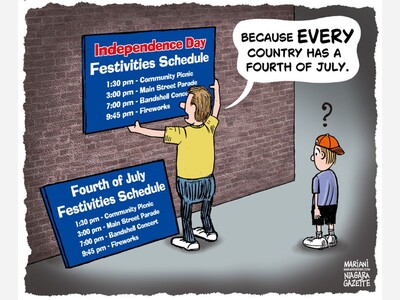Students engage on phones in schools
Submitted Niagara Community Information Group on behalf of CEO/Co-founder By Dr. Tina Gregory Schultz
When New York State announced plans to restrict cell phones in schools starting this fall, the Niagara Community Information Group (NCIG) didn't just wait for changes to happen—they created space for the people most affected to be heard.
Their recent Teen Hall listening sessions modeled exactly how community-driven policy should work: students shared how phones impact their learning and social lives, parents voiced safety concerns, and teachers offered practical classroom insights. In an era when top-down mandates often dominate education policy, these forums demonstrated the power of intergenerational dialogue.
"This wasn't just about cell phones," said one organizer. "It was about showing young people their voices matter in civic decisions that affect them." With Governor Hochul's "bell-to-bell" restrictions taking effect in 2025, NCIG will compile all feedback for local leaders—ensuring policy reflects on-the-ground realities before locker purchases or enforcement systems are finalized.
The sessions revealed generational divides:
• Teens advocated for emergency access, assistive technology, and after class recreation
• Parents split between supporting bans and wanting safety
• Educators emphasized consistent enforcement strategies
"What surprised us was how much perspectives shifted when people actually listened to each other," noted a participant.
As districts statewide prepare their approaches, NCIG's model offers a blueprint: Policy works best when it starts with conversation and civic engagement. The group continues collecting input at contact@niagaracommunityinfo.org.








